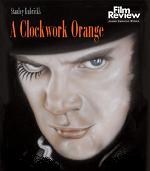The Last Word
Beethoven Week on the BBC ended at midnight June 10.
“With Beethoven, music did not grow up, it regressed to adolescence. He was a hooligan who could reduce Schiller’s Ode to Joy to madness, bloodlust, and megalomania.”
— Arts and Letters Daily, lead-in to an opinion piece in The Guardian of Tuesday, June 7, 2005:
| Beethoven Was a Narcissistic Hooligan
“If Beethoven had dedicated his obvious talents to serving the noble Pythagorean view of music, he might well have gone on to compose music even greater than that of Mozart. You can hear this potential in his early string quartets, where the movements often have neat conclusions and there is a playfulness reminiscent of Mozart or Haydn. If only Beethoven had nourished these tender shoots instead of the darker elements that one can also hear. For the darkness is already evident in the early quartets too, in their sombre harmonies and sudden key changes. As it was, however, his darker side won out; compare, for example, the late string quartets. Here the youthful humour has completely vanished; the occasional signs of optimism quickly die out moments after they appear and the movements sometimes end in uncomfortably inconclusive cadences…. In A Clockwork Orange it is the fourth movement of Beethoven’s Ninth Symphony that echoes in the mind of Alex whenever he indulges in one of his orgies of violence. Alex’s reaction may be rather extreme, but he is responding to something that is already there in this dark and frenzied setting of Schiller’s Ode to Joy; the joy it invites one to feel is the joy of madness, bloodlust and megalomania. It is glorious music, and seductive, but the passions it stirs up are dark and menacing.”  — Dylan Evans, former Lacanian psychotherapist (pdf) and now head of the undergraduate robotics program at the University of the West of England. |
Speak for yourself, Dylan.
“Evil did not have the last word.”
— Richard John Neuhaus, April 4, 2005
Evil may have had the last word in Tuesday’s Guardian, but now that Beethoven Week has ended, it seems time for another word.
For another view of Beethoven, in particular the late quartets, see the Log24 Beethoven’s Birthday entry of December 16, 2002:
|
Beethoven’s Birthday “Ludwig van Beethoven’s String Quartet in A Minor, Opus 132, is one of the transcendent masterworks of the Western classical tradition. It is built around its luminous third movement, titled ‘Holy song of thanksgiving by one recovering from an illness.’ In this third movement, the aging Beethoven speaks, clearly and distinctly, in a voice seemingly meant both for all the world and for each individual who listens to it. The music, written in the ancient Lydian mode, is slow and grave and somehow both a struggle and a celebration at the same time. This is music written by a supreme master at the height of his art, saying that through all illness, tribulation and sorrow there is a strength, there is a light, there is a hope.” “Eliot’s final poetic achievement—and, for many, his greatest—is the set of four poems published together in 1943 as Four Quartets…. Structurally—though the analogy is a loose one—Eliot modeled the Quartets on the late string quartets of Beethoven, especially… the A Minor Quartet; as early as 1931 he had written the poet Stephen Spender, ‘I have the A Minor Quartet on the gramophone, and I find it quite inexhaustible to study. There is a sort of heavenly or at least more than human gaiety about some of his later things which one imagines might come to oneself as the fruit of reconciliation and relief after immense suffering; I should like to get something of that into verse before I die.'” — Anonymous author at a “Each of the late quartets has a unique structure, and the structure of the Quartet in A Minor is one of the most striking of all. Its five movements form an arch. At the center is a stunning slow movement that lasts nearly half the length of the entire quartet… The third movement (Molto adagio) has a remarkable heading: in the score Beethoven titles it ‘Hymn of Thanksgiving to the Godhead from an Invalid,’ a clear reflection of the illness he had just come through. This is a variation movement, and Beethoven lays out the slow opening section, full of heartfelt music. But suddenly the music switches to D major and leaps ahead brightly; Beethoven marks this section ‘Feeling New Strength.’ These two sections alternate through this movement (the form is A-B-A-B-A), and the opening section is so varied on each reappearance that it seems to take on an entirely different character each time: each section is distinct, and each is moving in its own way (Beethoven marks the third ‘With the greatest feeling’). This movement has seemed to many listeners the greatest music Beethoven ever wrote. and perhaps the problem of all who try to write about this music is precisely that it cannot be described in words and should be experienced simply as music.” — Eric Bromberger, In accordance with these passages, here is a web page with excellent transcriptions for piano by Steven Edwards of Beethoven’s late quartets: Our site music for today, Beethoven’s String Quartet No. 15 in A Minor, Opus 132, Movement 3 (1825), is taken from this web page. |
See also the previous entry.